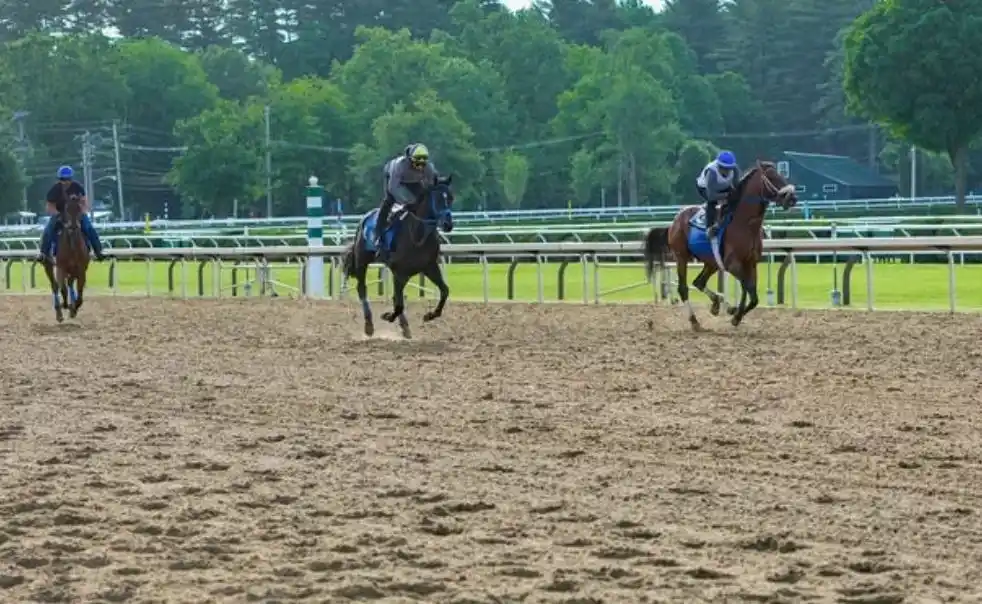ICE Raid at Delta Downs Alarms Racing Industry

Elle
Jun 20th 2025
Likes
Share:
An early morning raid conducted by Immigration and Customs Enforcement ICE Raid at the Delta Downs racetrack in Vinton, Louisiana, has created general concern across the horse racing industry. Over 80 backstretch workers were reportedly detained during Tuesday’s ICE Raid. Many of them are believed to be undocumented workers, performing essential jobs at the racetrack every day.
The strict steps taken have made a weak setup in the field even worse. For a long time, those who train and run stables have leaned on foreign workers to help care for racehorses. After the event, many stables had to slow down, and some horses could not do their morning runs because there were not enough people.
People there said that government people came early and started to check IDs and work papers. Many of those taken into custody had already started their morning tasks, feeding, grooming, or walking the horses.
The absence of backstretch staff has led to growing anxiety among trainers and owners about animal care and the long-term stability of the ICE Raid. One trainer noted that entire schedules were disrupted within a few hours. “No one else can step in and do their job soon,” he stated.
In the US, a lot of immigrants work in horse racing, and most of them are grooms, hotwalkers, or stablehands. This is very good for workers with undocumented workers, as horses can be worth a lot.
Estimates from industry groups suggest that up to 75% of all backstretch workers across U.S. tracks are undocumented workers, with a significant portion lacking formal work documentation. Many racetrack employers have argued that the labor pool in local areas is insufficient to meet their demands, and they’ve struggled to find replacements even when offering training and stable housing.
Immigration attorney Will Velie, who specializes in cases involving workers in horse racing, noted that this event has challenged the assumptions of many in the industry. “They supported President Trump, thinking immigration enforcement wouldn’t touch their barns. But what we’re seeing now is enforcement that includes nearly anyone without proper status.”
Following the ICE raid, legal support groups began organizing to help the families of those detained. Attorneys and immigration advocates are working to locate individuals and assist with processing. Some are calling for a temporary labor solution or federal work visa reform specific to the needs of the agricultural and animal care industries.
Trainers who were impacted by the ICE raid operation say they’re concerned about undocumented workers’ upcoming race schedules and long-term worker availability. One barn boss said he might have to pull horses from coming races if things don’t get better. “Taking care of these animals doesn’t stop, and we’re short on help.”
Many trainers are worried this won’t be a one-time thing. Since workers without papers are a big part of track work, they fear that other places might soon face the same issue.
Horse racing hasn’t been a main talk point in the big talks on who gets to stay in the country, but the trouble at Delta Downs has shed a new light on how much the game leans on workers who don’t have much in the way of rights.
Delta Downs hasn’t said anything yet, and the Louisiana Racing Board is still quiet about it. But inside, people are meeting to see how badly the hit is on the usual work and the races to come.
With no clear way out or quick fix for new workers, the folks in the racing world wonder how long they can keep going like this. The ICE raid has exposed a longstanding workforce reality that few within the industry can ignore any longer.
